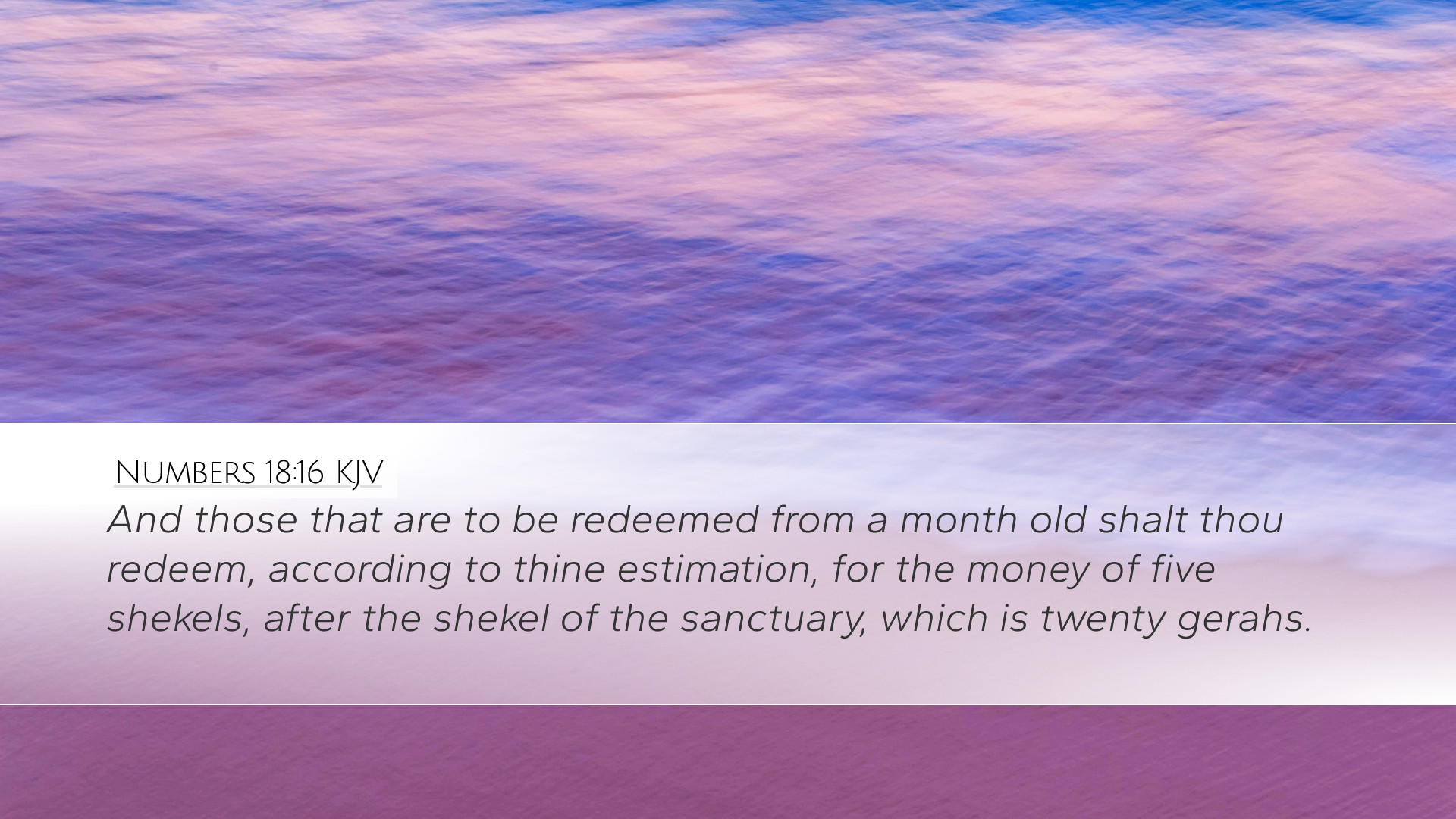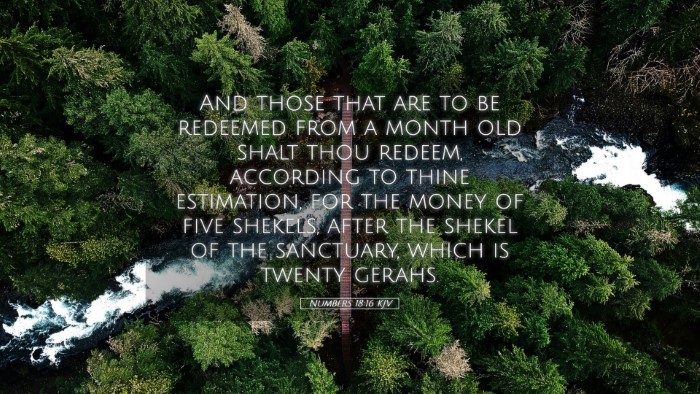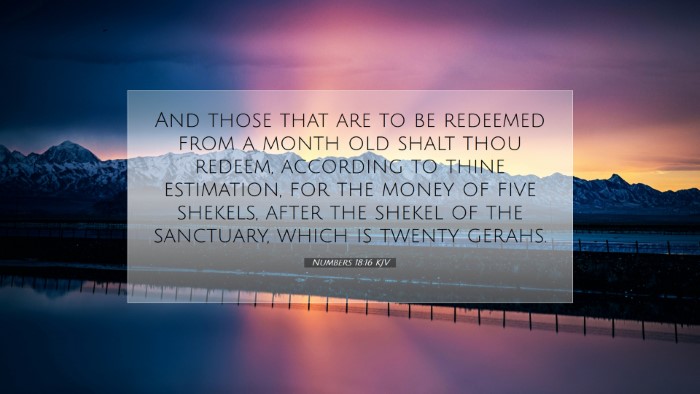Commentary on Numbers 18:16
Verse Insight: Numbers 18:16 states, “And those that are to be redeemed from a month old thou shalt redeem, according to thine estimation, for the money of five shekels, after the shekel of the sanctuary, which is twenty gerahs.” This verse relates to the system of redemption for the firstborn among the Israelites, a vital aspect of their covenant relationship with God.
Historical Context
The command regarding the redemption of the firstborn is rooted in the Exodus narrative when God struck down the firstborn of Egypt while sparing the Israelites (Exodus 13:12-15). Consequently, the firstborns of every household, animal, and human alike, were dedicated to God. This provision for their redemption indicates the theological significance of the firstborn in Israel's heritage.
Theological Importance
- God’s Ownership: The redeeming of the firstborn illustrates God's claim over the firstborns of Israel. It serves as a reminder that all life belongs to God, and every blessing comes directly from Him.
- Symbolism of Redemption: The monetary exchange of five shekels symbolizes a greater truth in regard to redemption, as it points toward the ultimate redemption through Christ, the firstborn of all creation. This connection to redemption is a recurring theme in Scripture.
- Value of Life: The pricing of the firstborn indicates the value placed not only on life but also on fidelity to God's commandments. There is an intrinsic worth assigned to the people of God, reflecting their special status in His plan.
Commentary Excerpts
Matthew Henry's Commentary
Matthew Henry points out that this system not only emphasizes the value of the firstborn but also affirms God's sovereignty and justice. The redemption fee serves as a means to express gratitude for God's deliverance and mercies shown during the Exodus. Furthermore, Henry highlights the importance of the priesthood in carrying out these redemptive processes, which reinforces their mediatory role in maintaining the covenant community's relationship with God.
Albert Barnes’s Notes
Albert Barnes elaborates on the significance of the five shekels, interpreting it within the socio-economic context of the Israelites. He connects the practice to the wider customs of the Near East, where firstborns were often regarded as particularly significant. Barnes emphasizes that this practice not only acknowledges God’s mercy in not taking the lives of the firstborns in Egypt but also instills a sense of responsibility among parents to ensure their children live in accordance with God’s commandments.
Adam Clarke’s Commentary
Adam Clarke brings attention to the idea of timing in redemption, noting the specification of “from a month old” as a critical factor. This suggests a waiting period for parents to reflect on the worth of life and the blessings received. Clarke also emphasizes the fairness of the redemption price, asserting that this practice served to support the Levitical priesthood, which provided for the spiritual needs of the nation while reminding parents of their obligations to God and community.
Application for Today
The principles exemplified in Numbers 18:16 resonate strongly within Christian theology. Pastors and theologians can leverage this narrative to explore themes of ownership, value, and redemption in contemporary faith practice. Students studying the Bible can use this insight to deepen their understanding of God's covenantal relationships throughout Scripture.
- Understanding Redemption: In light of Christ’s sacrifice, the need for redemption is underscored as a universal call. Every believer, like the firstborn, is invited into a relationship with God that requires recognition of the cost of sin and the grace extended through Jesus.
- Value of Spiritual Teaching: Just as the Levitical priests were integral to Israel's spiritual life, leaders today must emphasize education and moral instruction within their congregations, stressing the importance of covenant faithfulness.
Concluding Thoughts
Numbers 18:16 serves not only as a legal stipulation within the Mosaic Law but also as an enduring testament to the themes of redemption, value, and responsibility towards God. This verse and its surrounding context offer profound insights into the nature of divine ownership, human life, and the act of redeeming grace that echoes throughout the entirety of Scripture.


